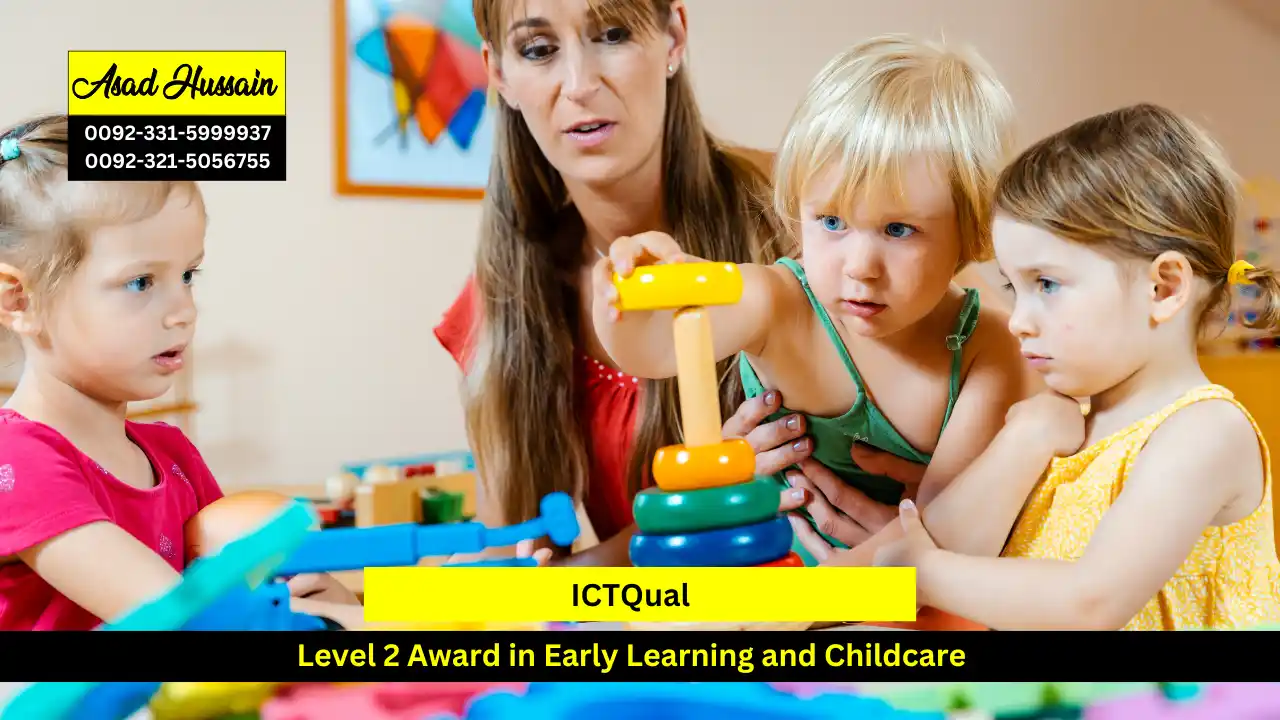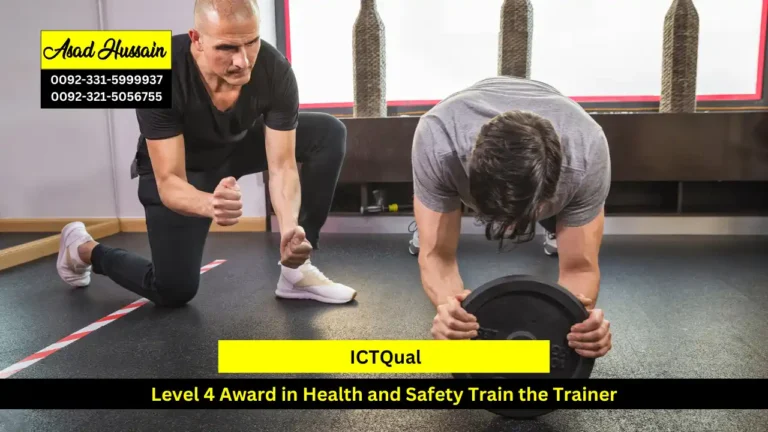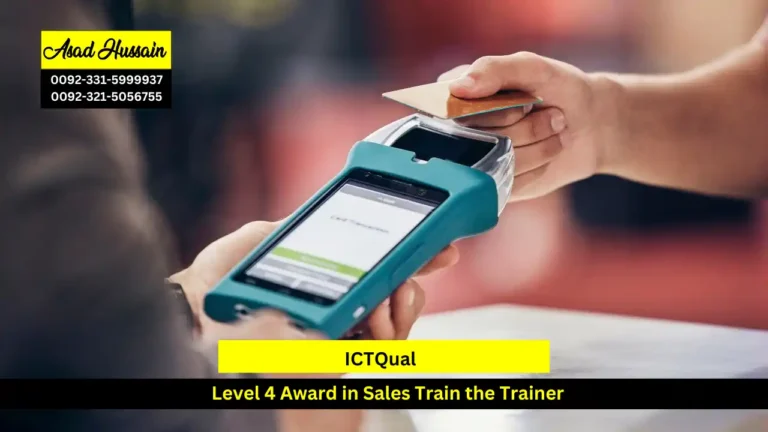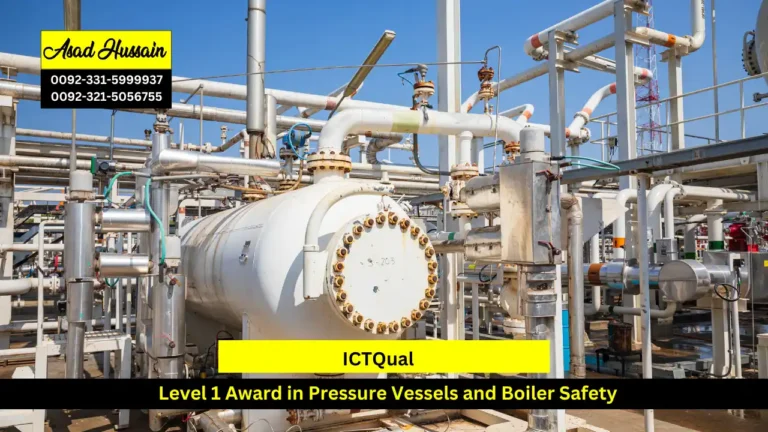The Level 2 Award in Early Learning and Childcare might be the perfect stepping stone for you. This qualification provides foundational knowledge and skills essential for anyone looking to start a career in early childhood education and care. Let’s delve into what this award entails, its benefits, and how it can open doors to a rewarding career in early learning and childcare.
The Level 2 Award in Early Learning and Childcare is designed to provide learners with a solid understanding of the principles and practices of early years education and care. This qualification covers various aspects of child development, health and safety, and effective communication with children, parents, and colleagues.
The Level 2 Award in Early Learning and Childcare is an excellent starting point for anyone passionate about working with young children. It equips you with the essential knowledge and skills needed to provide high-quality care and education in early years settings. By completing this qualification, you open doors to a fulfilling career where you can make a significant difference in the lives of young children. If you have a passion for early childhood education, this award is the perfect first step toward a rewarding career in early learning and childcare.
Program Highlights
Mandatory Units
- Child Development and Well-being
- Supporting Early Learning and Play
- Promoting Positive Behavior
- Observation, Assessment, and Planning
- Safeguarding and Child Protection
- Special Educational Needs and Disabilities
- Outdoor Learning and Nature Play
- Candidates must have successfully completed a Level 1 qualification in Early Learning and Childcare or a related field before enrolling in the Level 2 Award. This ensures that learners have a foundational understanding of early years practice and are prepared for the more advanced coursework at Level 2.
- Candidates are usually required to be at least 16 years old to enroll in the Level 2 Award in Early Learning and Childcare.
- Since the course is conducted in English, proficiency in the English language is essential to comprehend course materials, participate in discussions, and complete assessments effectively.
- Basic technical skills, including proficiency in using computers, conducting data analysis, and understanding mathematical concepts, are beneficial for successfully completing the course requirements.
Child Development and Well-being
- Understand the stages of child development from birth to age five.
- Identify factors that influence child development and well-being.
- Recognize the importance of emotional and social well-being in early childhood.
- Describe the role of early years practitioners in supporting child development.
- Apply knowledge of child development theories to practical scenarios.
Supporting Early Learning and Play
- Explain the significance of play in early learning and development.
- Identify different types of play and their benefits for children’s growth.
- Design and implement age-appropriate play activities to support learning.
- Understand the role of the environment in promoting effective play.
- Assess the impact of play on children’s cognitive, physical, and social development.
Promoting Positive Behavior
- Recognize the importance of promoting positive behavior in early years settings.
- Understand different strategies for managing and encouraging positive behavior.
- Implement behavior management techniques appropriate for young children.
- Identify the impact of positive behavior on children’s development and learning.
- Develop plans to address challenging behavior constructively.
Observation, Assessment, and Planning
- Understand the purpose and methods of observing children in early years settings.
- Conduct accurate and objective observations of children’s behavior and development.
- Use assessment tools to evaluate children’s progress and identify needs.
- Develop individual learning plans based on observation and assessment data.
- Collaborate with colleagues and families to support children’s learning and development.
Safeguarding and Child Protection
- Understand the principles and importance of safeguarding children.
- Recognize the signs and indicators of abuse and neglect.
- Understand the roles and responsibilities of early years practitioners in child protection.
- Follow appropriate procedures for reporting and responding to safeguarding concerns.
- Promote a safe and secure environment for children in early years settings.
Special Educational Needs and Disabilities (SEND)
- Understand the principles of inclusive education for children with SEND.
- Identify different types of special educational needs and disabilities.
- Implement strategies to support the learning and development of children with SEND.
- Collaborate with specialists and families to create individualized support plans.
- Evaluate the effectiveness of interventions for children with SEND.
Outdoor Learning and Nature Play
- Understand the benefits of outdoor learning and nature play for young children.
- Design outdoor activities that promote exploration, creativity, and physical activity.
- Implement health and safety measures for outdoor learning environments.
- Encourage children’s engagement with the natural world through play.
- Assess the impact of outdoor learning experiences on children’s development.
The Level 2 Award in Early Learning and Childcare is designed for individuals passionate about nurturing young minds and fostering positive early childhood experiences. It is ideal for those who are beginning their journey in the field of early years education, including school leavers, career changers, and anyone with a keen interest in child development and care. This course is perfect for aspiring nursery assistants, preschool workers, and childminders who seek foundational knowledge and practical skills to support children’s learning and well-being. Additionally, it is beneficial for current early years practitioners looking to formalize their experience with a recognized qualification, enhancing their career prospects and ability to make a meaningful impact in children’s lives.







